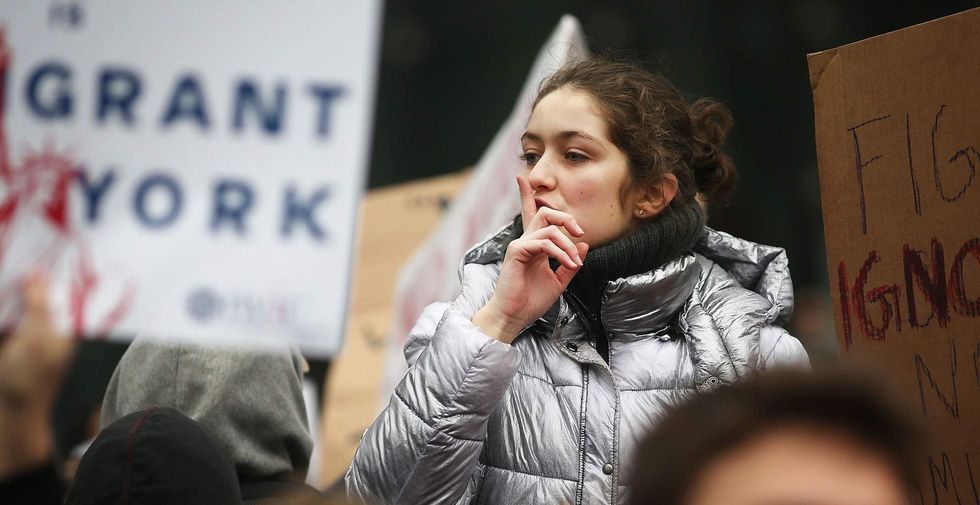
New York City high schoolers protesting President Donald Trump's policies on Tuesday. (Spencer Platt/Getty Images)

A new study of American high schoolers shows that they are quite conflicted on the First Amendment.
According to a new survey from the Knight Foundation, 91 percent of students believe people should be allowed to "express unpopular opinions." However, they have mixed feelings about constitutional protections for certain types of opinions.
"While support for the First Amendment as a general concept has never been higher, the devil’s in the details," Jonathan Sotsky, director of strategy and assessment for the Knight Foundation, told the New York Times.
The survey found that less than half — 45 percent — of high schoolers are OK with protecting the right to public speech if the content matter could be considered "offensive" to others and only 43 percent support those protections on social media. The numbers fall even further when it comes to bullying: Only 36 percent are OK with "bullying speech" in public and 30 percent on social media.
It is important to note that, though the survey's characterization — speech "considered bullying in nature" — is vague, bullying is not guaranteed to be protected by the First Amendment. In the Supreme Court's 1999 ruling on Davis v. Monroe, a case alleging peer-to-peer harassment in school, the court determined that speech is not protected if it "is so severe, pervasive, and objectively offensive that it can be said to deprive the victims of access to the educational opportunities."
However, despite claims to the contrary from people like CNN's Chris Cuomo, who in 2015 falsely asserted that hate speech "is excluded from protection," there is no distinction between offensive and inoffensive speech in the First Amendment.
Responding to Cuomo's claim, Eugene Volokh, a law professor at UCLA who specializes in free speech, quashed that myth in a 2015 Washington Post piece:
Hateful ideas (whatever exactly that might mean) are just as protected under the First Amendment as other ideas. One is as free to condemn Islam — or Muslims, or Jews, or blacks, or whites, or illegal aliens, or native-born citizens — as one is to condemn capitalism or Socialism or Democrats or Republicans.
Nevertheless, the idea that certain kinds of speech should not be permitted in the public arena is gaining traction with young Americans.
A 2016 Gallup survey found that 69 percent of college students believe schools should be allowed to ban "using slurs and other language on campus that is intentionally offensive to certain groups," 63 percent supported banning "wearing costumes that stereotype certain racial or ethnic groups" and 23 percent agreed with blocking the sharing of political perspectives that may be "upsetting or offensive" to certain groups.